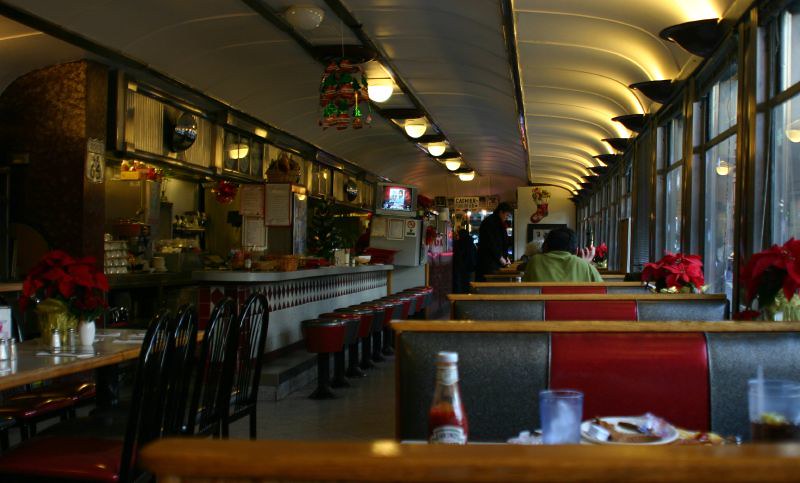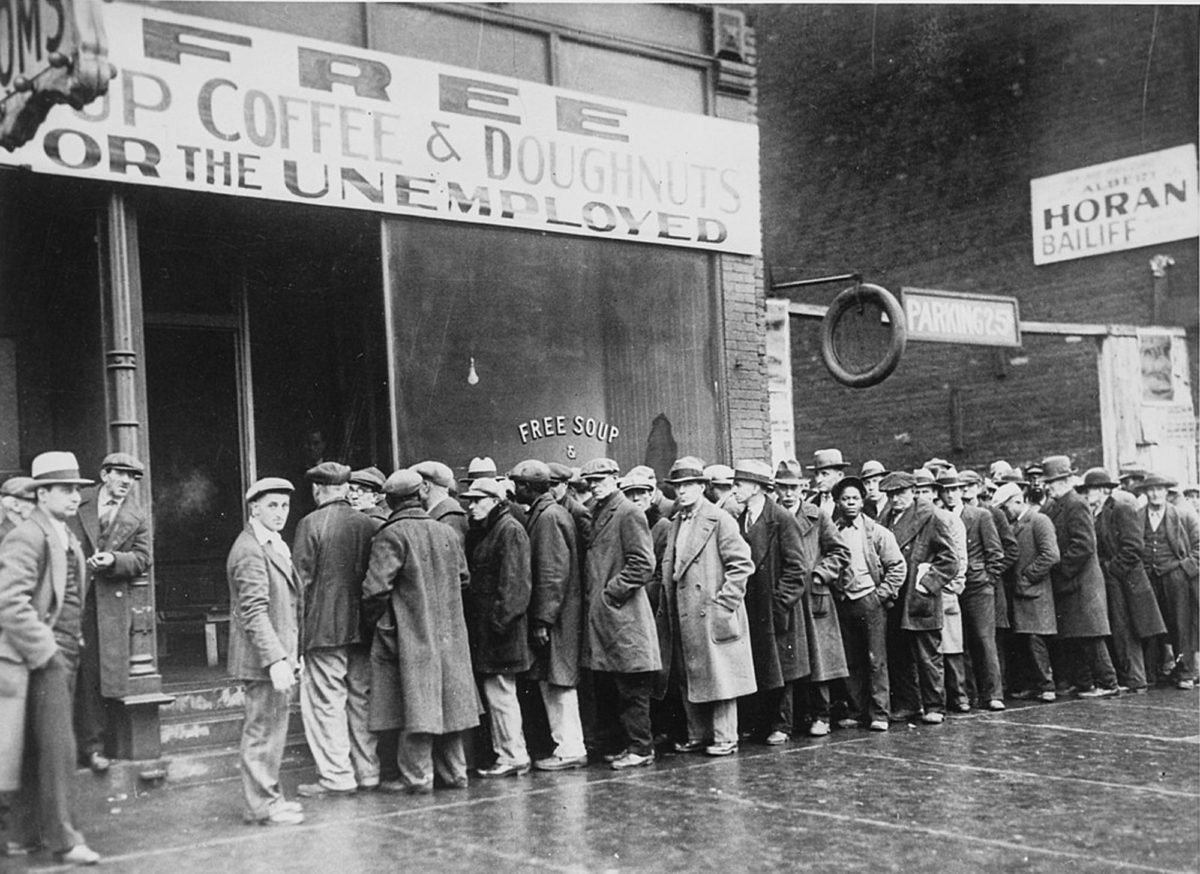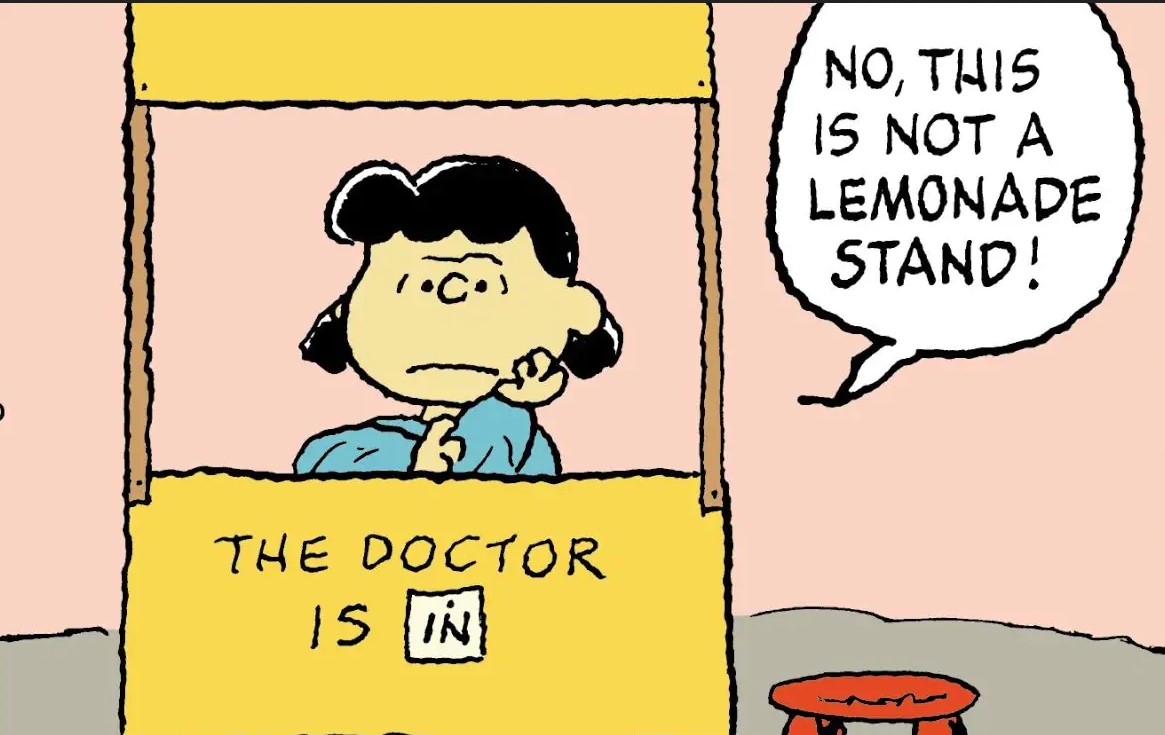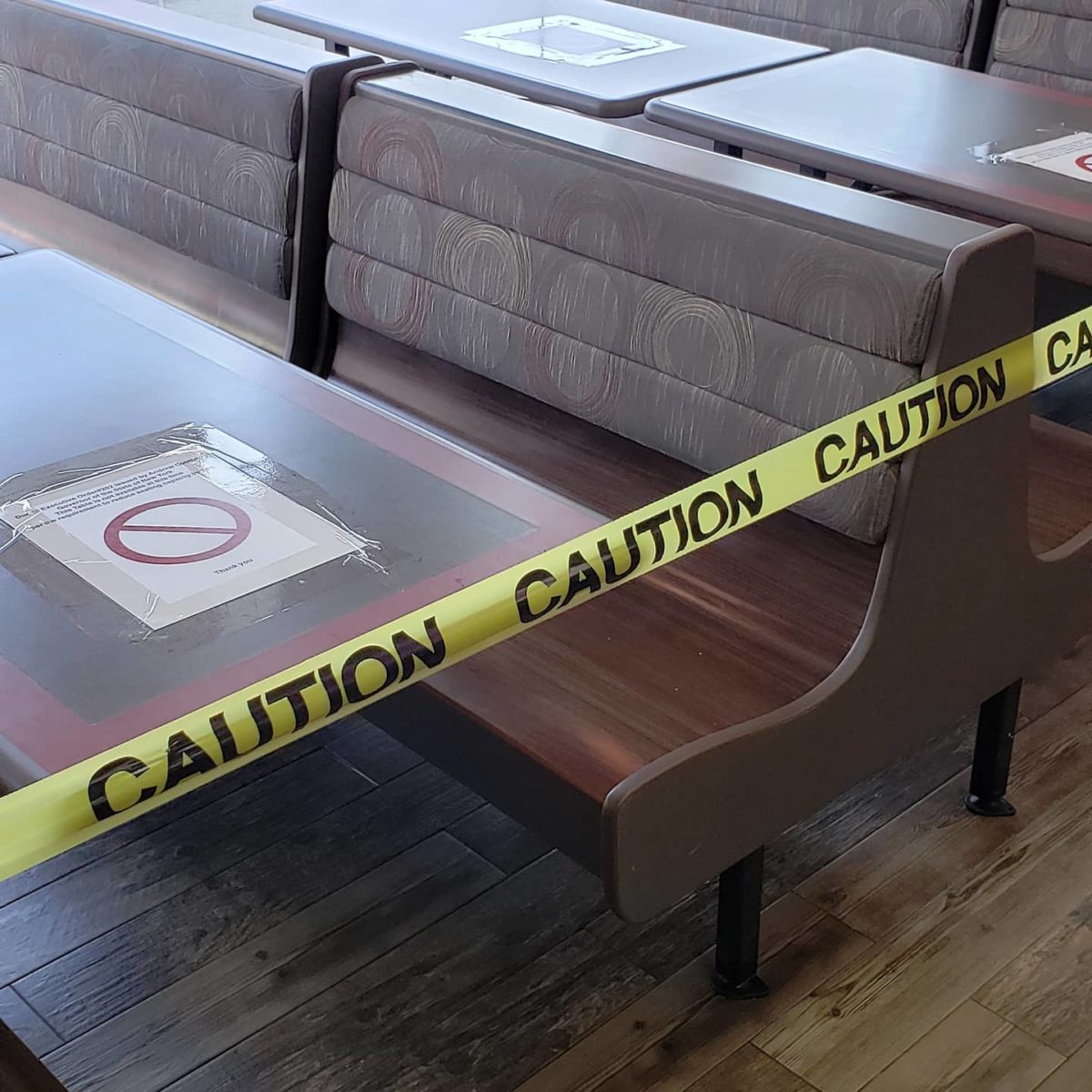As someone who spends a lot of his time creating realistic illusions for the ear, there was something incredibly off about a white man dressed in black, donning an umbrella, wearing a gas mask with purple-fringed nozzles, and deciding to hammer the windows of an AutoZone store in Minneapolis. By all reports, the protests that emerged in the wake of George Floyd’s death were relatively peaceful. The mysterious Umbrella Man — as I shall now call him — behaved like an undercover cop or an agent provocateur, with some people online claiming that he was a cop in St. Paul. The St. Paul Police Department denied that the Umbrella Man was working for them. There’s also flimsy and unsourced evidence — the kind of material that would never hold up in court or in journalism — floating around that features alleged text screenshots from the St. Paul police officer’s ex-wife. But this was easily debunked. I did a public records search for the police officer in question Minnesota Official Marriage System and there’s no record that matches up to the information that has been promulgated on social media. It’s possible that the officer and his wife married in another state. But if he was operating as a cop in St. Paul and the ex-wife identified his boots and mask, surely they would have married in Minnesota. I am inclined to believe that the St. Paul cop identified is not the Umbrella Man.
Nevertheless, the Umbrella Man’s behavior is quite suspect . There was also another man spotted around Minneapolis wearing a pink shirt and sometimes holding a pizza box (hereinafter referred to as “Pizza Guy”). Additional investigation on Saturday afternoon has revealed the Pizza Guy to be a benign Minneapolis activist belonging to a peerless group known as A Mother’s Hope. The Pizza Guy’s identity, which I am withholding unless he offers his consent, and his impeccable background has been corroborated with four people in Minneapolis. We still do not know what he and the Umbrella Man said to each other as they walked around the AutoZone building. And I have extended an open invite to the Pizza Guy through the organization to clarify any and all details of what transpired.
What follows is a methodical dive into all the videos and resources that I have been able to locate so far. Because if the fiery Minneapolis riots were instigated by these two men, then they are at least partially responsible for the shift from peaceful protest to the destruction of property — a transition that, as of this writing, has now erupted in cities around the United States. The incident at AutoZone changed the tone of the protests. The motivations of the Umbrella Man are unknown. In assembling this piece, I’m simply going to stick with facts that we can corroborate and isolate specific details that point to why the Umbrella Man and the Pizza Guy behaved as they did. If you are reading this and you have additional videos or details on either of these two men, please don’t hesitate to leave a comment or get in touch with me so that we can carry on this investigation until we discover just who these two men are and what agency they were working for. Again, I am interested in facts, not conspiracies. And I will be as methodical as I can in this investigation.
1. The AutoZone Glass Smashing

The original video featuring both the Umbrella Man and the Pizza Guy was shot not far from the Minneapolis 3rd Police Precinct, near the AutoZone that was vandalized by the Umbrella Man. I have also provided an accompanying map. The line on the map follows the camera movement during the one minute and 40 second clip. At Position 1, the Umbrella Man hammers the windows of Autozone. At Position 2, there is an altercation between Umbrella Man and the woman shooting the video with her phone. Here is a summary of the events:
0:00-0:04: The cameraman helpfully identifies the police station of the Minneapolis 3rd Police Precinct.
0:09: The cameraman is disrupted by sounds of tinkling glass emerging from the Autozone behind him. We see the Umbrella Man, donning an umbrella on a perfectly sunny day (and thus presumably using the umbrella for cover), systematically taking out the windows.
0:15: The Pizza Guy approaches the Umbrella Man. Notice that the Pizza Guy is holding the pizza box like a regular person here.
Various activists approach the Umbrella Man and the Pizza Guy, shouting, “Hey!” Even the cameraman remarks, “Those cops will come from you if you’re pulling that crap.”
The Pizza Guy follows the Umbrella Man. At 0:35, there is a break in the source video. And I believe this to be a second video shot by a woman. The Umbrella Man is now seen alone, with the Pizza Guy following behind him. There is an unknown scream behind the wall at 0:40, along with cries of “Don’t do it! Don’t do it!” It remains unknown why the Pizza Guy is following the Umbrella Man. The Pizza Guy is then seen smoking some form of blunt (or claiming to). The second cameraman observes, “This guy just came with a hammer and smashed the windows.”
At 0:54 (Position 2 on the map), the Umbrella Man turns around and confronts the Pizza Guy.
UMBRELLA MAN: If you find me, I’m going to fight you right now.
PIZZA GUY: You, you want to go? What’s up?
The Pizza Guy then takes a hit on his blunt in a fairly theatrical manner, looking directly at the camera in the manner of a self-conscious performer.
PIZZA GUY: Someone hold my blunt.
The Umbrella Man then attacks the second camera person.
PIZZA GUY: Hey, hey, hey!
Someone then screams at the 1:08 mark, “Are you a fucking cop?”
The Pizza Guy then follows the Umbrella Man to the far end of the AutoZone building. What’s particularly interesting about this exchange is that both men raise their voices knowingly, almost as if this is a staged dispute for the camera.
2. Umbrella Man and Pizza Guy — Thick as Thieves
Video: They salted the snifter. Double act black 'Pizza Box' guy & Umbrella 'Agent Provocateur' MPD cop Jacob Pederson – they were in it together to get the riot party started?pic.twitter.com/UOqc5q8i71
— James Nurden 🗯 (@JamesNurdenDC) May 29, 2020
Video: They salted the snifter. Double act black 'Pizza Box' guy & Umbrella 'Agent Provocateur' MPD cop Jacob Pederson – they were in it together to get the riot party started?pic.twitter.com/UOqc5q8i71
— James Nurden 🗯 (@JamesNurdenDC) May 29, 2020
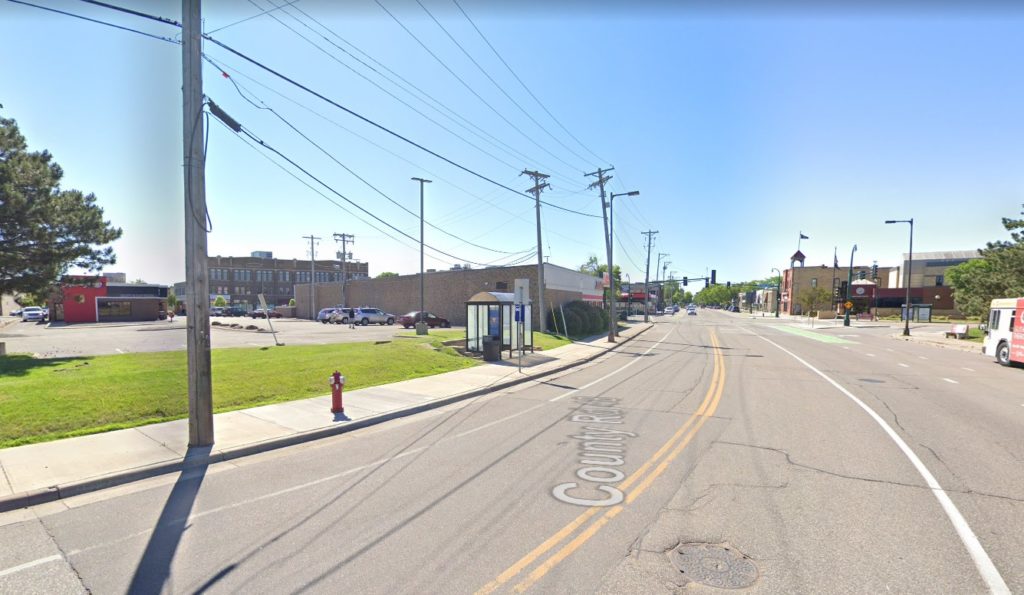

In a video posted by James Nurden on Twitter (source unknown), the Umbrella Man and the Pizza Guy return, starting at the 0:07 mark. Using Google Street View, I was able to identify the same bus stop and building in this video. The two men are moving along Minnehaha Avenue, just north of the AutoZone building. This video appears to have been shot just after Video #1. I have also attached a Google Maps screenshot, tracking their movement.
There are a number of things to observe here: (1) The Pizza Guy is now holding the pizza box under his arm rather than in front of him. Additional research and interviews on this story have revealed that the Pizza Guy was carrying around the box after offering it for lunch to his group. (2) We see the Pizza Guy being incredibly friendly with the Umbrella Man. The two are talking with each other as if they know each other. Minutes earlier, they were about to put on a fight. The exact reasons for this are presently unclear. We also see the Pizza Guy smiling, almost in the manner of an actor who had some fun putting on a performance.
3. Staged Intervention from the Pizza Guy?
Look at the guy in pink, he talks with the police as the crisis actors break the windows of the police station in Mineapolis. And the woman in the right giving instructions to the man in pink to come forward. All staged. Share and follow pic.twitter.com/EajETedfvX
— Alex LunaViewofJungle (@AlexLunaViewof1) May 29, 2020
Look at the guy in pink, he talks with the police as the crisis actors break the windows of the police station in Mineapolis. And the woman in the right giving instructions to the man in pink to come forward. All staged. Share and follow pic.twitter.com/EajETedfvX
— Alex LunaViewofJungle (@AlexLunaViewof1) May 29, 2020
In a moment that appears to have occurred sometime after the AutoZone incident, our friend the Pizza Guy — putting his palms up into the air — returns as protesters are throwing rocks at the 3rd Police Precinct station. He emerges at the 0:17 mark, saying, “Hold up! I’m trying to calm them down.” The three officers firing at the protesters never turn their weapons on the Pizza Guy. Then the Pizza Guy disappears with a jarring finality, walking off with a head shrug.
4. Interview with the Pizza Guy

In one of the more promising leads on the Pizza Guy, Stephania Dube Dwilson of heavy.com tracked down an interview that was conducted by journalist Emma Leigh Fiaja. The video date is identified as May 27th. Dwilson has also kindly served up a transcript. One of the particularly key moments in this video is this:
This does not matter if we just shut up after a month. This does not matter if we be quiet and we don’t respond if something doesn’t happen. We have to continue. So all of this is great, but where are all these people gonna be in two weeks, in three weeks, in four weeks, in two months? Where are these people gonna be at? Y’all fighting, y’all moving in anger, that’s fine. We need something to mobilize.
The Pizza Guy is not violent (and refrains from using profanity, using “eff” instead of “fuck”). Additional investigation has revealed that this was a good faith attempt to intervene with the police.
5. The Umbrella Man Returns!
Got hit by the tear gas #wcco #mpls #newsphotojournalist #cbs pic.twitter.com/m0GP48kcAe
— Dymanh Chhoun (@Dymanh) May 28, 2020
In a tweet posted by WCCO photojournalist Dymanh Chhoun that is just outside AutoZone (specifically, the door with the graffiti that reads “FREE SHIT FOR EVERYONE ZONE”), the brave Chhoun reports that he has been hit with tear gas. But the Umbrella Man, who initiated the broken windows in Video #1, can be seen at the 0:22 mark.
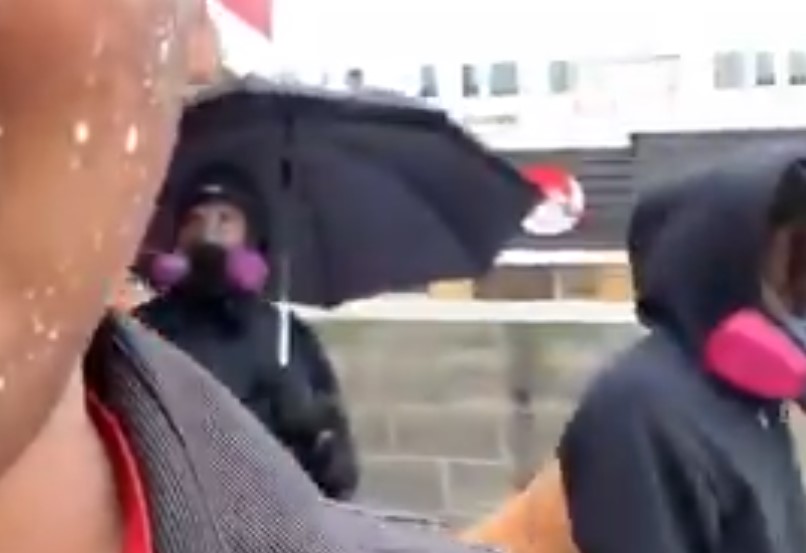

We are left with a number of questions. Assuming that the tear gas was fired at Chhoun and others after the AutoZone smashing and the police precinct building vandalism, why would the Umbrella Man return to the scene of the crime? And why would he commit the vandalism so close to the 3rd Police Precinct building?
We’ve seen that both the Pizza Guy and the Umbrella Man didn’t wander that far from the corner of East Lake Street and Minnehaha Avenue. But they did both spend a lot of time close to the Minneapolis Police Department’s precinct building. Was the Minneapolis Police Department the entity that had the Umbrella Man on its payroll? And if there was another covert entity involved, did the Minneapolis Police Department work closely with it? (I tried making phone calls to the Minneapolis Police Department to hear its answer. I was told that there wasn’t a designated representative who could confirm or deny this question.) Organizers who attended the scene informed me that they were unaware of who the Umbrella Man was.
6. The Pizza Guy and the Umbrella Man Hanging Around the Police Precinct Building
Umbrella man appears behind the police precinct at :047. Pink pizza guy in center frame throughout film and approaches precinct. pic.twitter.com/aWMKTUEdDC
— Forrest Rogers (@Forrest_Rogers) May 30, 2020

In the last video I have been able to find, we see our pink-shirted friend, The Pizza Guy, calmly walking up to the 3rd Police Precinct building. He appears to be surveiling the scene. Note that, unlike Video #3, in which we see the Pizza Guy actively begging the police to back down, he does not intervene in the destruction — except for one moment at the 0:27 mark, in which he grabs a barricade held by a protester and throws it down. He wanders around the building near the front and he appears to be taking in details. It seems likely that the Pizza Guy was acting quite confused in the struggle.
Oh, and our friend The Umbrella Man, is also there.

CONCLUSIONS:
Both the Umbrella Man and the Pizza Guy were spotted numerous times near the corner of East Lake Street and Minnehaha Avenue. Umbrella Man, in particular, was clearly videotaped inciting the urge to turn a peaceful protest into one that involved the destruction of property. While details about the Pizza Guy’s conversation with the Umbrella Man remain nebulous, we now know from people in Minneapolis that the Pizza Guy was acting in good faith. Perhaps the two men bonded in some way, with Pizza Guy unaware that he may have been talking with an agent provocateur. Umbrella Man’s deliberate vandalism of the AutoZone store is almost certainly the actions of an agent provocateur of some sort. We have learned over the course of this investigation that the group that the Pizza Guy was with was acting in good faith.
Serious questions must now be put forth to and answered by the Minneapolis Police Department, the Minnesota State Police, and any other law enforcement agency in the region about what connection, if any, they have had with the Umbrella Man.
[11:45 AM UPDATE: New information has come to light suggesting that there is some evidence that Pizza Guy may not be an agent provocateur. Pizza Guy’s pink T-shirt is associated with a group called “A Mother’s Love,” which has been profiled by FOX 9 and North News. I have amended this post to reflect this new information and am presently trying to get in touch with the organization to get more answers.]
[12:20 PM UPDATE: This story has been updated to correct a small error concerning the St. Paul police officer’s name.]
[1:15 PM UPDATE: After several interviews, I have identified the Pizza Guy, but I will not name him here unless he gives me his consent. Needless to say, he is a devoted member of A Mother’s Hope and he is not an agent provocateur. This article has been edited to reflect this new information.]
[5/31/2020 6:15 PM UPDATE: A reader named Eric points to this useful thread, which posits some information about the Umbrella Guy and a Maserati he may or may not have used to drive into Minneapolis.]
6/3/2020 8:00 AM UPDATE: Elijah Easley has released a video outing himself as the Pizza Guy:
[6/4/2020 11:15 AM UPDATE: In the comments thread for this post, a wonderful user by the name of doikster has offered an incredibly helpful time-stamp breakdown of the Umbrella Man’s activities. For those interested in a deep dive, I highly recommend doikster’s links and observations. I did, however, want to dispel one speculation that doikster brought up concerning a construction van. I spoke this morning with Tara, formerly of LeBlanc Construction. LeBlank has been out of business for two to three years. The owner has retired. And it’s pretty much Tara left. When the business dissolved, LeBlanc sold its van. And this is the van that is in the video. Presumably, the current owner of this van moved to the Minneapolis area, but never bothered to remove the “LeBlanc Construction” decals. So it was not a mysterious out-of-state van driving into Minneapolis, as has been suggested.]

